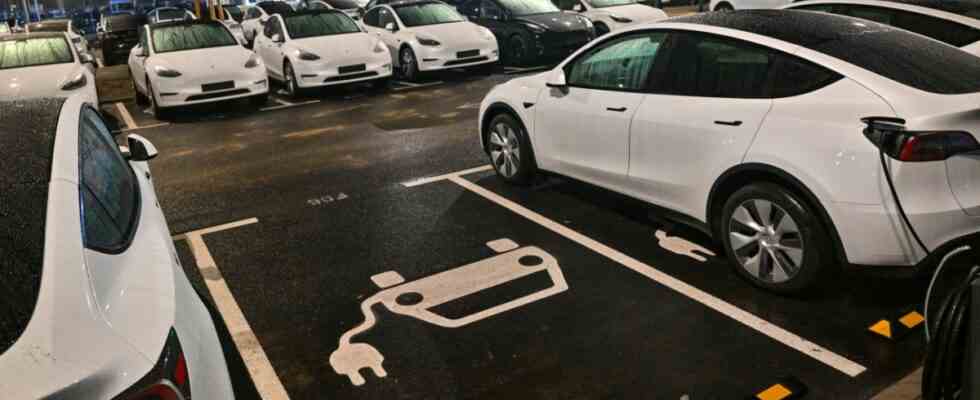It sounds a bit like old friends reuniting. A little chat, everyone laments a little about their little problems and after two hours of coffee, everyone agrees: “It’s nice that we talked again.” But nothing more. Federal Chancellor Olaf Scholz had invited the most important people in the car industry in Berlin to his first mobility summit, and in the end everyone is somehow relieved about the exchange – but for not a single one of the numerous traffic problems in Germany is there even the slightest hint of a solution.
A meeting like this would have been the perfect occasion to specifically take care of the largest construction sites on Germany’s roads. Even if, of course, no laws are made or subsidies distributed with such a format – a few ideas on how to achieve the climate goals in the transport sector, which Germany is in danger of failing, that one could have expected. Just a bit more than a nice reunion among old friends.
There are numerous examples of what has not worked so well in the mobility transition so far. The most obvious of these: At such summits, it is still mainly representatives of the auto industry who talk to the most important politicians. On the list of participants this time: car bosses, supplier bosses, union bosses. A representative of the think tank Agora Verkehrswende was allowed to have a say, but equal mobility beyond the car cannot be achieved with such a cast. Where are the representatives of public transport, bicycle clubs, other environmental organizations? Only if all of these groups are involved on an equal footing from the start can an overarching mobility concept emerge – and not just a problem-solving of the automotive industry.
No wonder, then, that Tuesday’s main focus was on the concerns of this industry. The main reason is that the switch from combustion engines to electric cars is not going to happen really quickly – and that competition from the USA and China is increasingly affecting German car manufacturers. Some of this is whining at a high level, after all, despite all the crises, car manufacturers have recently made billions in profits, especially with combustion engines, especially with very expensive cars.
However, it cannot be overlooked that the target of 15 million electric cars by 2030 will probably be missed by a wide margin. What industry and politics want to do specifically to counteract this trend – such a summit would at least have offered scope for declarations of intent. It could have looked like this, for example: We will not let the subsidies for electric cars expire. We are also providing a kind of electricity price brake at the charging stations. We want to abolish all subsidies and tax benefits for combustion engines as quickly as possible so that the cost advantage of electric cars is as great as possible.
Only with such instruments can one approach the most important goal in this debate: How can as many people as possible get access to this climate-friendly mobility? When you talk about automobility, this means that there is a permanent need for electric cars in a price segment in which the typical used car buyer moves and not just models for already privileged company car drivers. The expansion of the charging infrastructure must focus even more on places where people do not have their own charging connection and are therefore reluctant to switch.
The representatives of the automotive industry rightly warn again and again that e-mobility will fail without a good charging network. The fact that Mercedes is now building thousands of charging stations and investing billions in them is also a sign that other players are apparently not capable of filling the charging gaps quickly enough. But it also shows that if necessary, the industry has the means to help out. However, it would be nice if these many charging stations were not mainly in the USA, but in Germany.
Maybe they did talk about it after all at this mobility summit. If so, then those involved should come up with concrete ideas as quickly as possible. Because one thing is clear: Talking alone has rarely changed anything.

